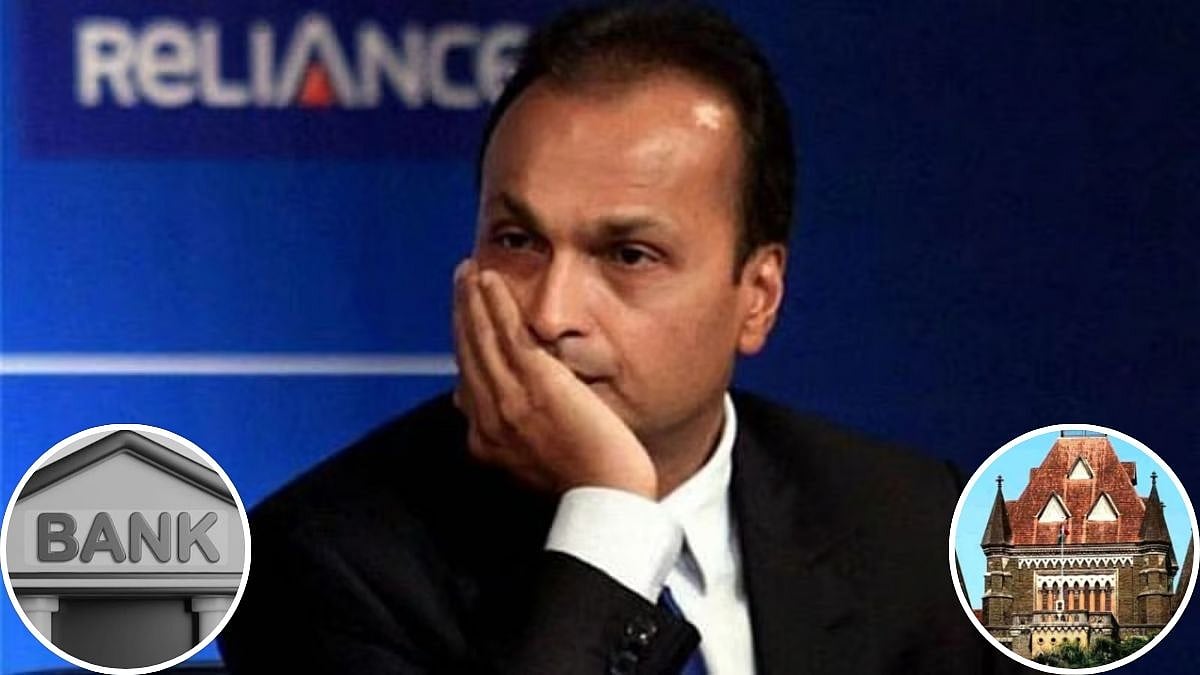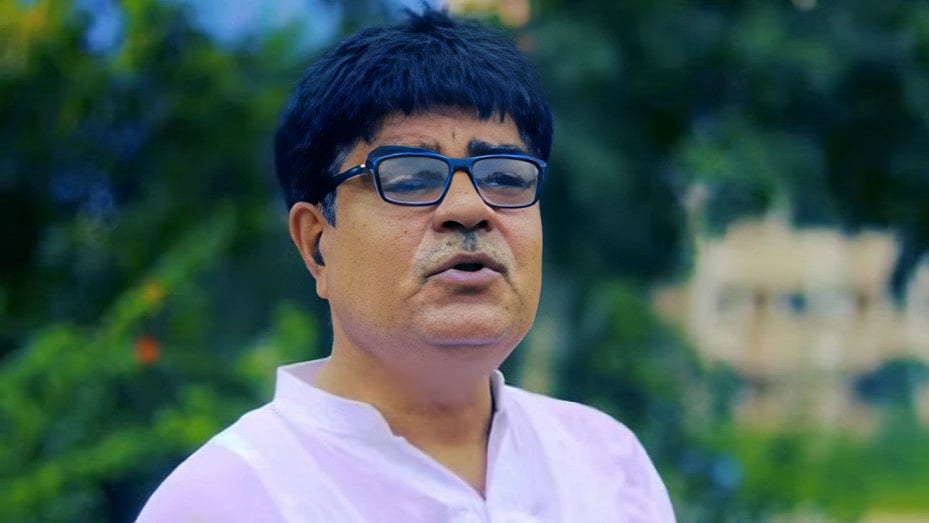QTP and Natak Company on Saturday staged the digital version of Iranian playwright Nassim Soleimanpour’s internationally acclaimed play, White Rabbit Red Rabbit. Staged simultaneously in Hindi (by Jayati Bhatia), Marathi (by Pushkaraj Chirputkar) and English (by Mantra Mugdh) on Zoom, it was part of Aurora Nova’s worldwide initiative to mark the anniversary of the longest theatre shutdown in modern history through a global event, where the Berlin-based production company along with Soleimanpour invited theatre companies to White Rabbit Red Rabbit on March 13, 2021 at 8 pm across time zones.
It is indeed an apt play to mark the period of isolation and confinement and also to celebrate the transgressive and transformative power of theatre. Soleimanpour had created this experimental play while he was forbidden to leave his homeland, Iran, for refusing to sign up for the national military service mandatory for all Iranian men. Confined in Tehran, 29-year-old Soleimanpour wrote this absurdist adventure reflecting the angst of an entire generation of computer literate, well-informed Iranians who have lived through the hardships of the Iran-Iraq war and have grown up in a poisonous atmosphere of mistrust and exploitation under an authoritarian Islamic regime. It is ironic that a play created in confinement has gone on to become one of the most travelled pieces in recent times. Premiered in 2011, in Edinburgh and at the Summerworks festival, it has been translated into 25 languages and performed over 2000 times in various parts of the world. In fact, by the time Nassim was permitted to travel for the first time in early 2013, his play White Rabbit Red Rabbit had been performed over 1000 times in 20 languages.
The play involves no rehearsals, there is no director. A new actor performs in each show and the person is handed over the avant-garde script only once s/he is on stage facing the audience. We spoke to Quasar Thakore Padamsee of QTP, the theatre group that had introduced the Indian audience to this unique experience way back in 2016 and also helmed Saturday’s Zoom edition. Excerpts:
Tell us about the concept of White Rabbit Red Rabbit. When did you first come across Nassim Soleimanpour’s play and what made you take it up? Do you remember the first show?
Friend and fellow theatre wallah, Vivek Madan, encountered the play at the Edinburgh Fringe Festival in 2013. He referred it to our senior producer Vivek Rao who was also at the Fringe. That’s how we got hooked onto the project. We opened our first show of White Rabbit Red Rabbit at Writers’ Bloc festival at Prithvi in 2016. Ali Fazal was the first performer. It was a remarkable piece of theatre. At the first show, you could feel the excitement and anticipation from both actor and audience as he turned each page.

Jayati Bhatia |

Mantra Mugdh |

Pushkaraj Chirputkar |
This play has a unique format, it is apparently all impromptu…there are no rehearsals, no director, the actor walks on to the stage and opens a sealed envelope that has the script along with some cues (which are often open-ended), which the actor has to interpret on his own way. For the longest, I have wondered if this is kind of a reality show that is in fact scripted as one…but isn’t. How much of it is really impromptu? What about repeat audiences?
That’s what makes the play so special. It’s technically unprepared, but yet it is beautifully crafted through the script. Actor and audience discover the story together. That's unlike any theatre experience. So, on the one hand it is unrehearsed and yet on the other you have to trust the written world implicitly. We’ve had audience members attend a 6 pm show and then immediately after buy a ticket for the next one. Because each actor makes it different and the audience participation is unsure each time.
Did you ever think of using a new script for each show?
The aim of the project is to get Nassim’s words to the audience. Without it being ‘tainted’ by artifice. So, it must be the same text.
Why did you decide to do it in three different languages?
We think it is an incredible idea and a lovely piece of theatre. Unique and ‘live’ in the best possible way. We wanted as many people to experience the same thing. We had the play translated so that more people could have access to it.

Also, the play runs the risk of becoming verbose if not handled well. So, getting the right actor is crucial. How do you decide on that? Any instance where it has not worked at all or where it has exceeded your expectation?
Nassim is a bit of a genius. And, as long as you stick to his text the play works. Yet, each performance has been very different. Some have improvised a lot, others have stuck to a mundane reading. And, yet, the play works.
How many actors have attempted this for QTP so far?
Over 70 actors performed the play for us from 2016 to 2017. These included stage actors like Anahita Uberoi, Atul Kumar and Sohrab Ardeshir to Radio Hosts like Malishka and Hrishi K. And, even film guys like Anurag Kashyap and Richa Chadha.
How has the play aged and evolved, given the fact that the novelty factor could have become jaded after the first few shows?
The play and the form are still highly relevant. Now that we are doing the Zoom version, it makes it even more current. The form of the play revels in uncertainty since the actor is not sure what comes next. What could be more apt in these Covid times, where the future is so unpredictable?

Why did you choose this play to commemorate the anniversary of the shutting down of theatres around the world?
This was Nassim’s idea… for people around the world to perform the play to commemorate the anniversary of the shutdown. It’s a very positive reaction to a negative event. And, that's what the arts is all about… celebrating the human spirit. Over 100 performers performed this simultaneously. At 8 pm their local time!
Also, now the theatre spaces are opening up, why did you decide to do an online show instead?
We are performing live on Zoom. It is not a recording. Each audience gets to experience a uniquely live show that they are present for. We felt that by doing a live online performance we can reach the most people. Given the amount of audience interaction the play has, we felt it would be safer to do this on Zoom.
Do you think Zoom plays, which might be a better option than recorded plays, are the way forward and that it might require its own grammar that is yet to be figured?
Online live performances are slowly finding their grammar. And, it’s very exciting. It’s almost a new form. Thespo last year featured four different forms. So, people are slowly finding new ways to make the medium work for them.
Since the closing of theatre spaces, how has theatre in the city evolved? Has the community come closer and what were the various kinds of experiments you have been part of so far?
The city theatres have only recently opened. In the euphoria of being back everyone is mounting existing shows. Very little new work has emerged yet. So, the true reflection on the work still has to be seen. There have been some innovations in trying to keep people safe. At Tamasha, the actors performed behind a plastic sheet!
Do you think, this unique situation that the pandemic had put us all into, had made us all, especially artistes, attempt things that they wouldn’t have otherwise…and the gap between art and technology has shrunk a bit?
I think technology is still catching up with online live performance. There have been many advances but it's still about jugaad!
What is the most outrageous/hilarious thing you have attempted during the lockdown?
Doing a play on Zoom, for example, is like converting a conference room for a play!
The first show

It was a wonderful experience. It was one of a kind. It is the reason behind why the play was created that makes it so amazing. I didn’t realise it while performing it because the audience is going with it and laughing, but it hit me when I was watching Atul Kumar perform it for the second show. There is such depth of thought and sensitivity embedded in that script! It is a pure work of genius because it works in all geographies and in all languages. I performed it in English, which was a translation of the original work. Nassim was not allowed to travel outside his country at that point and so he devised a play that could travel without him, yet obey his own canvas. I loved the idea. It is something that you can’t even perform ever again…because once you perform it, you know the text. The whole point is not to know the text. So, it was indeed an once-in-a-lifetime experience! The best part is that every show is different because every choice the actor makes is based on his/her life experiences.
— Ali Fazal was the first actor to perform White Rabbit Red Rabbit for QTP











